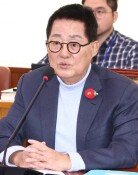Budget bill must be quickly proceeded
Budget bill must be quickly proceeded
Posted December. 19, 2022 07:42,
Updated December. 19, 2022 07:42
The ruling and opposition parties continued negotiations on next year’s budget bill over the weekend but failed to reach an agreement. National Assembly Speaker Kim Jin-Pyo has declared the plenary session on Monday as the “fourth” deadline. Rep. Woo Sang-ho of the Democratic Party, who heads the special committee on the parliamentary investigation into the Itaewon disaster, said he would hold a plenary meeting today and embark on the main investigation and adoption of witnesses, saying, “We cannot postpone it any longer.” In other words, the governmental investigation of the Itaewon disaster could be carried out only by the three opposition parties.
They already missed the statutory deadline (Dec. 2) and the end of the regular session of the National Assembly (Dec. 9) for the budget bill. As criticism brewed, the ruling and opposition parties agreed to process it on Thursday, only to fail again. The remaining issues are narrowed down to two. Regarding the top corporate tax rate, the ruling and opposition parties argue for a 3-percentage point cut or equivalent and a 1-percentage point cut, respectively. Regarding the plan to cut the entire budget of the Ministry of the Interior and Safety’s Police Bureau and the Ministry of Justice’s personnel information management team and spend it as a reserve, the ruling party maintains a negative attitude, saying, “Do you mean to deny the function and legitimacy of the new organization?”
The period for the special committee’s activities is 45 days, until Jan. 7 next year. There are only 20 days left. This is because of the recent political strife, including the delay in processing the budget bill and the resignation of the People Power Party’s Special Committee members after the Democratic Party exclusively handled the proposal to dismiss Minister Lee Sang-min. It may be extended by the resolution of the plenary session. The Democratic Party has officially announced an extension of the period, but the People Power Party is against it, arguing for quicker handling.
Since the National Assembly Advancement Act was enacted in 2014, the budget bill has renewed its record of ‘late handling’ every day. There are also concerns that the conflict around the budget bill will continue until Christmas or the end of the year. If they agree on a “quasi-budget,” both parties will be seen as the worst National Assembly that has hindered the people’s livelihood and the national economy for their own interest. In particular, the Democratic Party should make a sweeping decision on the issue of cutting corporate taxes to strengthen the competitiveness of domestic businesses.
They must agree upon the budget bill as soon as possible, and the ruling and opposition parties jointly proceed with the investigation. If it is carried out half-baked, the special committee may face difficulties, as related agencies may be uncooperative in submitting data. Since more than half of the time has already passed, extending the investigation period should also be considered if necessary.







